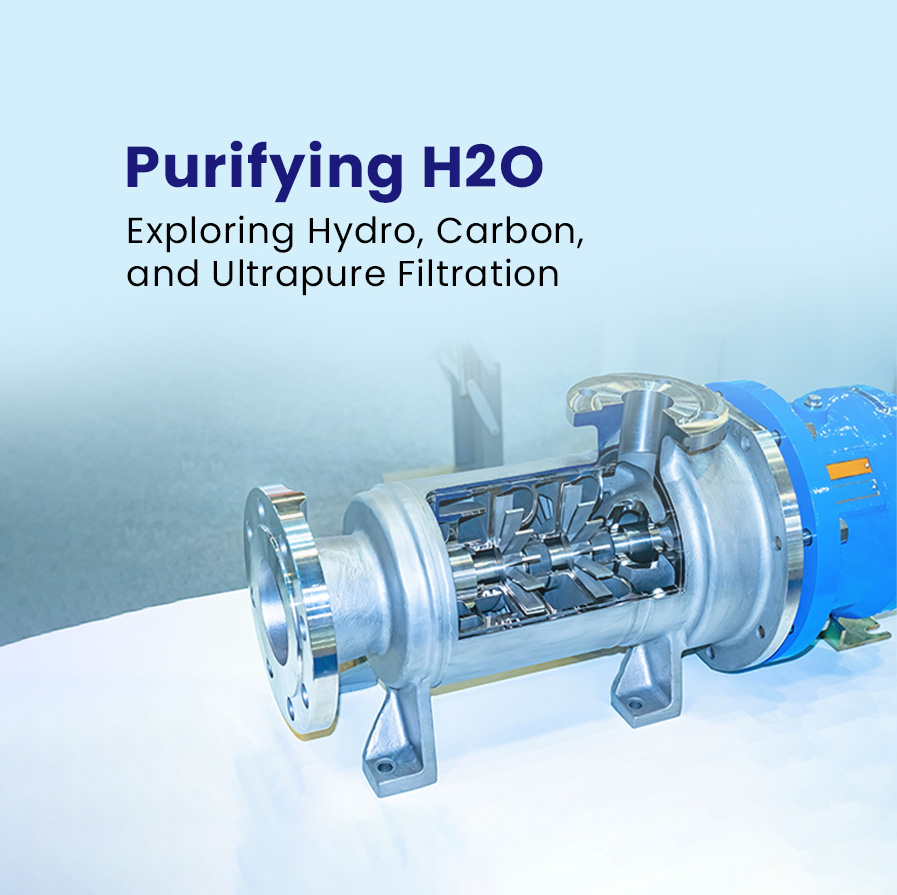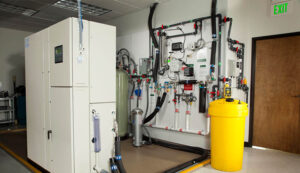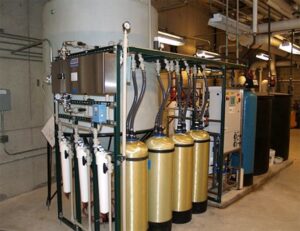In today’s pursuit of cleaner and safer water, various purification systems have emerged as beacons of reliability and efficacy. Among these, hydro water purification system, carbon filtration, and ultrapure water filtration stand out as innovative solutions that promise unparalleled water quality. From harnessing the power of nature in hydro systems to the versatile absorption capabilities of carbon filters and the precision of ultrapure filtration, these technologies represent the forefront of ensuring access to pristine and healthy water. Let’s delve deeper into the intricacies and benefits of these advanced purification methods shaping our access to high-quality water.
The Current and Past Methods of Water Purification
Water is Earth’s essential element. About 71% of earth is water of which 3% is freshwater. And not much of that water is drinkable, 1.2% of Earth’s water is used for drinking. So how did people in the past drink water? Well, the problem is the reason for the invention. People invented water purification methods to fulfill their requirement of potable water. These methods have evolved over time and now we have more efficient methods from which we can obtain pure and clean water.
Current Methods of Purifying Water
- Filtration: Water is passed through various materials like sand, charcoal, or specialized filters to remove impurities and particles.
- Boiling: Heating water to kill germs, bacteria, and other harmful microorganisms.
- Chlorination: Adding chlorine or other disinfectants to kill bacteria and viruses in water.
- Reverse Osmosis: Using a membrane to filter out contaminants and particles from water.
Past Methods of Water Purification
In the past, people used simpler methods as they didn’t have today’s technology:
- Boiling: The most common method – heating water to kill germs.
- Sedimentation: Allowing particles to settle at the bottom of containers, then pouring off the clearer water on top.
- Filtration through Cloth or Sand: Pouring water through cloth or sand to trap dirt and impurities.
- Sunlight Exposure: Leaving water in the sun, using solar disinfection – UV rays would kill some harmful organisms.
Overall, modern methods have become more advanced and effective in removing a wider range of contaminants compared to the simpler techniques used in the past.
Understanding Hydro Water Purification System
What is a Hydro Water Purification System?
A hydro water purification system is a method inspired by nature’s way of cleaning water, like in rivers and lakes. It uses sand, gravel, and sometimes good bacteria to filter out dirt and yucky stuff from the water.
How Does it Work?
Water flows through layers of sand and gravel in the hydro system. As water moves through these layers, the sand and gravel act like natural filters, trapping dirt and tiny particles. Sometimes, friendly bacteria living in these layers also help clean the water by breaking down harmful stuff.
What is its Efficiency and Benefit?
Hydro systems are quite efficient in cleaning water and making it safe to drink. They are good at removing dirt, bacteria, and chemicals, providing us with clean and healthy water. Plus, they’re eco-friendly and don’t need lots of power or chemicals to work.
How has it evolved from Past Methods?
In the past, people relied on simple methods like boiling, sedimentation, and cloth filtration to clean water. Hydro systems are an evolved version of these older methods, using natural materials and processes to purify water in a more advanced and effective way.
How is it linked to Carbon Filtration and Ultrapure Filtration?
Hydro systems are connected to carbon filtration and ultrapure filtration in their goal of cleaning water. While hydro uses natural materials like sand and gravel, carbon filters use charcoal to trap impurities. Ultrapure water filtration system, on the other hand, uses high-tech methods to remove even tiny particles and make water super clean. All three methods aim for the same result: providing us with safe and healthy water to drink and use.
Understanding Carbon Filtration Systems
What is a Carbon Filtration System?
Carbon filtration systems are a clever way to clean water using something called activated charcoal. This special charcoal has a large surface area that helps trap bad stuff in the water.
What is its Efficiency and Benefit?
Carbon filters are fantastic at cleaning water because they can grab onto lots of different impurities. They’re excellent at removing bad tastes, odors, chemicals, and even tiny particles. This makes the water taste better and safer to drink.
What industries can it be used in?
Carbon filtration is super versatile and used in many places. You’ll find it in home water filters, in big industries making drinks like soda or beer, and even in factories treating wastewater before it goes back into nature.
What is the difference from other Purification Methods?
The main difference is in how it traps impurities. While other methods like boiling or sand filtration work to remove certain things, carbon filters are like magnets, grabbing onto a wide range of impurities, making water taste better and cleaner.
Understanding Ultrapure Filtration Systems
What is an Ultrapure Filtration System?
An ultrapure water filtration system is a super-advanced way to clean water, aiming to remove even the tiniest particles and impurities, making the water incredibly pure and clean.
What is its Efficiency and Benefit?
Ultrapure filters are incredibly precise, removing almost all impurities from the water, even the microscopic ones. This results in water of the highest quality, free from particles, chemicals, and contaminants. It’s especially essential for places needing ultra-clean water, like laboratories and electronics manufacturing.
What industries can it be used in?
Ultrapure filtration is crucial in industries that need super-clean water, like making computer chips, pharmaceuticals, or in scientific laboratories. It’s also used in hospitals for medical equipment and procedures that need pure water.
What is the difference from other Purification Methods?
Unlike other methods that might clean water to a good standard, ultrapure filtration takes it to the next level by removing even the tiniest impurities. It’s like a super detailed cleaning process, making the water incredibly pure and free from almost everything that’s not water.
What is the future of Hydro Water Purification Systems?
The future of hydro water purification systems looks promising! Advancements in these technologies are super important because they can make these systems even better at cleaning water. Imagine if they become more efficient, using less energy, or if they could clean more water in less time. That would mean even more people could get clean and safe water to drink.
Plus, if they become cheaper and easier to use, more places around the world could benefit from this kind of system. So, making improvements in hydro water purification tech is really necessary to help more people and make water cleaner for everyone.
To Sum It Up
In conclusion, the continuous development revolving around hydro water purification system and other advanced filtration methods holds a promising future for providing cleaner and safer drinking water. The ongoing improvements in these technologies aim to enhance efficiency, accessibility, and affordability, ensuring more people worldwide have access to high-quality water. By making these systems more efficient, cost-effective, and user-friendly, the prospects of cleaner water for everyone become more achievable. The commitment to advancing these purification technologies remains pivotal in addressing global water quality concerns, offering hope for a future where clean and safe water is accessible to all.




